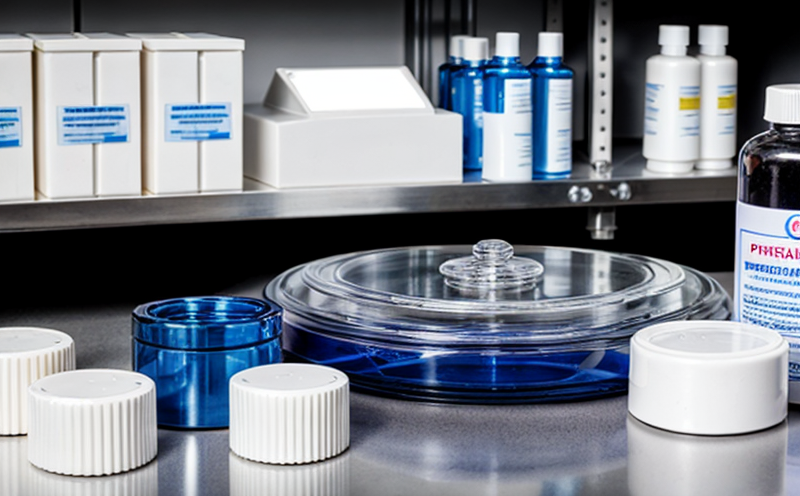Pharmaceutical Manufacturing Compliance: A Critical Component of Industry Success
The pharmaceutical industry is a highly regulated sector, governed by numerous laws, regulations, and guidelines that dictate every aspect of manufacturing, from production to packaging. Pharmaceutical manufacturing compliance is a critical component of the industrys success, as non-compliance can result in severe consequences, including product recalls, fines, and damage to reputation.
Compliance with Regulatory Agencies
Pharmaceutical manufacturers must comply with various regulatory agencies, including:
US Food and Drug Administration (FDA): The FDA regulates the production, labeling, and distribution of pharmaceutical products in the United States. Compliance with FDA regulations is mandatory for all pharmaceutical manufacturers operating in the US market.
Key Requirements for Pharmaceutical Manufacturing Compliance
In addition to compliance with regulatory agencies, pharmaceutical manufacturers must also meet a range of key requirements, including:
Good Manufacturing Practices (GMPs): GMPs are guidelines that dictate how manufacturing processes should be conducted to ensure product quality and safety. GMPs cover aspects such as facility design, equipment cleaning and maintenance, personnel training, and document control.
Quality Management System (QMS): A QMS is a structured approach to managing an organizations quality management activities. It includes policies, procedures, processes, and resources necessary to ensure the delivery of products that meet customer requirements.
Risk Management: Risk management involves identifying, assessing, and mitigating potential risks associated with manufacturing processes. This includes monitoring production steps, testing materials, and evaluating suppliers.
Regulatory Compliance for Active Pharmaceutical Ingredients (APIs)
Active pharmaceutical ingredients are the primary components of a drug product, responsible for its therapeutic effect. APIs are subject to strict regulations due to their potency and potential for adverse effects. Key requirements for API compliance include:
Source Inspection: Manufacturers must ensure that raw materials, including APIs, are sourced from trusted suppliers who can provide documentation supporting the authenticity of the material.
Identity and Purity Testing: Regular testing is required to verify the identity and purity of APIs. This includes analysis using techniques such as high-performance liquid chromatography (HPLC) or gas chromatography-mass spectrometry (GC-MS).
Validation and Verification: Manufacturers must validate and verify all processes, including synthesis, purification, and formulation.
Regulatory Compliance for Finished Pharmaceutical Products
Finished pharmaceutical products are the final dosage forms of a drug product. Key requirements for compliance with finished pharmaceutical products include:
Packaging and Labeling Requirements: Packaging materials and labeling must comply with regulatory requirements, ensuring that products are accurately labeled and meet packaging standards.
Sterility Testing: Sterile products require testing to confirm their sterility, typically using methods such as membrane filtration or direct inoculation.
Stability Testing: Manufacturers must conduct stability testing to evaluate the products shelf life and performance over time.
QA Section
1. What is the role of a Quality Assurance (QA) team in pharmaceutical manufacturing compliance?
The QA team is responsible for ensuring that all aspects of manufacturing, from production to packaging, meet regulatory requirements. This includes reviewing documentation, conducting audits, and implementing corrective actions as needed.
2. How often should quality control (QC) activities be performed in pharmaceutical manufacturing?
QC activities, including testing and inspection, must be conducted regularly, typically on a batch-by-batch or lot-by-lot basis. This ensures that any deviations from expected results can be quickly identified and addressed.
3. What are the key principles of Good Manufacturing Practices (GMPs)?
Key principles of GMPs include:
Ensure that all processes are controlled and documented.
Train personnel on their responsibilities and expectations.
Monitor and control raw materials, including APIs.
Validate and verify production processes.
Maintain accurate records and documentation.
4. How can pharmaceutical manufacturers ensure compliance with regulations for active pharmaceutical ingredients (APIs)?
Pharmaceutical manufacturers must:
Verify the authenticity of API suppliers.
Regularly test APIs to confirm their identity and purity.
Conduct validation and verification studies to support the quality of APIs.
Ensure that all processes, including synthesis and purification, are properly validated.
5. What role do packaging and labeling regulations play in pharmaceutical manufacturing compliance?
Packaging and labeling must comply with regulatory requirements, ensuring that products are accurately labeled and meet packaging standards. This includes verifying that packaging materials are compatible with the product and labeling is clear and concise.
6. How can pharmaceutical manufacturers ensure compliance with regulations for finished pharmaceutical products?
Pharmaceutical manufacturers must:
Verify the accuracy of labeling and packaging.
Conduct sterility testing on sterile products.
Conduct stability testing to evaluate the products shelf life and performance over time.
7. What are the consequences of non-compliance in pharmaceutical manufacturing?
The consequences of non-compliance include product recalls, fines, and damage to reputation. In extreme cases, failure to comply with regulations can result in the shutdown of a facility or revocation of licenses.
8. How can pharmaceutical manufacturers implement an effective quality management system (QMS)?
Pharmaceutical manufacturers can:
Establish clear policies and procedures.
Train personnel on their roles and responsibilities.
Monitor and control processes regularly.
Conduct regular audits to identify areas for improvement.
9. What is the importance of risk management in pharmaceutical manufacturing compliance?
Risk management involves identifying, assessing, and mitigating potential risks associated with manufacturing processes. This includes monitoring production steps, testing materials, and evaluating suppliers.
10. Can a single deviation from regulatory requirements result in a full product recall?
Yes, even a single deviation from regulatory requirements can trigger a full product recall. Regulatory agencies take non-compliance seriously, and manufacturers must ensure that all processes meet regulatory standards to avoid such consequences.

































